Innovative research
The school develops research projects "oriented towards the needs of society" which attempts to provide original solutions to the difficulties encountered by society or in industrial practice. The research teams use the most up to date/complex scientific knowledge, and carry out fundamental research when existing theoretical models prove insufficient to solve problems arising from real life situations.
The school's research teams are heavily involved in territorial technological cooperation policies (competitiveness clusters), in economic development activities (support for SMEs – small and medium sized companies), and in the creation of innovative companies.
More than a third of the centers' research activity is carried out via direct industrial contracts. In addition to its own development capabilities, the school can rely on the ARMINES association for certain research contracts. The school is also a member of the Carnot MINES (with the other schools in the mines group and the Ecole Polytechnique in particular). The objective of the Carnot label partnership is to reinforce the transfer of knowledge and skills to the economy in our fields of research in the perspective of global competition in a sustainable way. This is done by developing the activity of direct partnership research with industry, by ensuring the scientific quality of our research actions and by improving the coherence and complementarity of actions using a strategic vision within the departments.

Valorization
IMT Mines Alès is one of the schools of excellence from the Institut Mines Télécom, the leading French group of engineering and management schools. Among the school's missions is the valorization of the results of the work carried out by its research teams (software programs, databases, products, materials, processes, know-how, etc.), technology transfers and technical assistance to industry through its platforms.
IMT Mines Alès is an ally to regional and national companies in their efforts to innovate and improve their skills. More specifically, the school has an ecosystem capable of identifying the needs of companies in terms of technological developments and innovation in order to mobilize the scientific and technical teams to develop appropriate solutions.

Our range of solutions
Partnership research collaborations (collaborative research, direct contractual research with companies), industrial chairs, sponsorship chairs, joint laboratories, study services, measurements and tests, expertise and consulting, technology watch operations, or even the organization of thematic days (congresses, symposiums, seminars, etc.).
These R&D partnership offers are in line with the school's organization in terms of valorization of results:
- intellectual property protection strategy (full ownership, sharing shared or assignment)
- a single mandate strategy for technology transfer and commercialization activities,
- partnership agreement with the regional SATT (Société d'Accélération du Transfert de Technologies) AxLR,
- a support system for start-ups, particularly for young companies incubated at the school.
In addition to its R&D services to industry, IMT Mines Alès also finances scientific developments and commercialization activities for its own programs, through high-tech contracts with industrial suppliers.
Expertise and collaborations
The objective of IMT Mines Alès is to contribute to the creation of economic value by increasing the competence of companies, from very small businesses to large private groups.
The positioning of IMT Mines Alès' research work is ideally suited to the needs of companies in so far as the knowledge generated is directly oriented towards industrial or societal issues, while at the same time being upstream of the competitive research developed internally in companies.
In terms of resources, our research activities rely on know-how, software and state-of-the-art equipment. Some of this equipment is grouped into platforms available to companies. Each platform concentrates, in a specific field of engineering sciences, all the material and human resources of the school. The skills of the teams are thus federated around high-level equipment, often on an industrial scale.
In operational terms, we have set up an organizational circuit to take charge of private partners in order to support them throughout the process of examining their projects at the organizational, scientific, financial and legal levels.
Have you thought about hosting a PhD student? To find out more, consult the terms and conditions of the doctoral program at IMT Mines Alès.
Chairs
- Sponsor: Synapse Informatique
- Scientific coordinator: Pr Anne Johannet (IMT Mines Alès, UMR HSM)
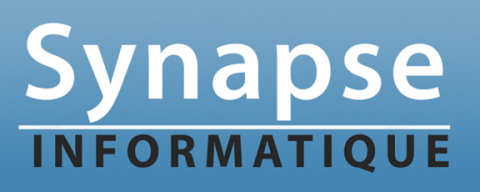
Signed in May 2021, the Hydr.IA chair associates IMT Mines Alès and the company SYNAPSE and aims at developing a set of hydrometeorological forecasting services based on artificial intelligence (AI) techniques. IMT Mines Alès, through its HSM research unit, is a French leader in the use of AI in hydrology, while SYNAPSE is an SME specializing in online hydrological data concentration and availability services. The range of services envisaged responds to a specific momentary need without any "off-the-shelf" solution that allows users to anticipate phenomena in order to better protect themselves, using any technique available. AI, by reducing the costs of field studies, will allow delivery of efficient services at an affordable cost for all public and private water managers, in order to significantly reduce the risks related to floods, the natural hazard with the most impact. The losses linked to floods are indeed considerable, first in terms of human lives lost (sometimes by the dozens as in the Aude in 1999, the Gard in 2002, the Var in 2010, the Aude in 2018, on the Atlantic coast in 2010 or even more recently in the Alpes Maritimes), or traumatised. In addition to these losses, there is economic damage to businesses and direct or indirect costs (insured property, infrastructure). These costs amount to an average of 5.5 billion euros per year in the European Union and could reach 50 to 80 billion euros per year by 2080 as a result of the socio-economic and climatic changes currently anticipated (Rojas et al., 2013). In France, they reach 650 to 800 million euros per year and nearly one in four French people and one in three jobs are potentially exposed to this risk (DGPR, 2014).
This project is based on a specifically French observation: despite the growing development of solutions related to AI in many complex fields, such as health, production engineering or aeronautics, and the demonstration of their relevance to many problems in hydrology and hydrogeology, there is a deficit in the transfer of these technologies to end users. First of all, we find there are the local authorities, who are the main targets for SYNAPSE in the field of hydro(geo)logical forecasting. It appears that two elements are missing to ensure a more massive transfer of these solutions towards the market. The first one is the difficulty of directly confronting research to real operational conditions, with the specific and insightful requirements of users. The second is the limited confidence of users in solutions often perceived as opaque. With operational implementation is rare, this induces a vicious circle that this project aims to break.
The envisaged work program is structured to meet the following objectives:
1) Definition of the range of real-time forecasting services and expected functionalities, corresponding to the need for impact reduction and in line with market acceptance,
2) Realization of a demonstration platform of these services replaying past flood events in order to demonstrate the efficiency of AI to end users,
3) Development of methodologies for the design of AI models adapting to the range of services previously defined,
4) Extension of the forecasting horizon, currently limited to the response time of the hydrosystem, by coupling AI modeling solutions with weather forecasts that can be post-processed. The Hydr.IA Chair will allow us to bring the identified innovations up to TRL9 level, with for some of them a transfer on to the market even before the end of the 54 months of the contract.
The work carried out within the framework of this Chair will consist of integrating artificial intelligence techniques into the service of hydrometeorological forecasting, as it is already used in the service of health, production engineering and aeronautics.
By reducing the cost of field studies and designing relevant models, the ultimate goal is to deliver high-performance services that meet these major societal challenges at an affordable cost. In this field, IMT Mines Alès has distinguished itself by being ranked in the top 200 worldwide in the Times Higher Education Impact ranking of in the category of "Clean and sustainable water management" (SDG n°6) and "Preservation of aquatic environments" (SDG n°14). The results of LABCOM's work will be used directly by Synapse in an enhanced offer of advanced forecasting tools and services, aimed at flood warning managers.
- Sponsor: Assystem
- Scientific coordinator: Pr Vincent Chapurlat (IMT Mines Alès, ISOAR team)
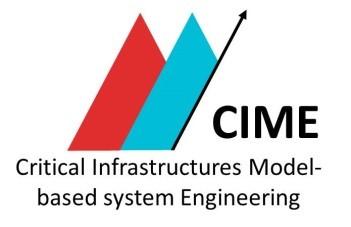
The CIME Chair was signed in June 2019 for a 5-year research and development program. This Industrial Chair was set up in a collaboration between the ASSYSTEM Engineering and Operation Services group, IMT Mines Alès via the Computer and Production Engineering Laboratory (LGI2P) and the Mines-Alès Foundation under the aegis of the Mines-Telecom Foundation.
ASSYSTEM offers solutions in the field of project management, engineering, operational performance, security and safety for energy and industrial and urban infrastructures. Its R&D strategy aims to anticipate its customers' needs, relying in particular on partnerships with the academic world and startups. ASSYSTEM has thus initiated R&D work aimed at exploring the capabilities of new digital technologies and methods and offering innovative approaches to modeling, verification, evaluation, etc., all at the service of complex projects requiring a strong need for multidisciplinary collaboration.
Through this chair, the partners show a strong desire to develop methods and tools in the field of systems engineering and particularly Model Based Systems Engineering (MBSE) in the nuclear sector both nationally and internationally.
Systems Engineering is a multidisciplinary and collaborative design method widely used in the industry. In particular, it promotes the role and relevance of systemic principles, modeling, engineering and project management processes that are subject to standards. This is called Model-Based Systems Engineering (MBSE), which has shown undeniable advantages in various industrial sectors. However, the success of its deployment remains dependent on the methods and tools for modeling, data management and analysis that are put into the hands of the collaborators.
Both in its concepts and in the techniques and tools implemented, the Teachers/Researchers of the Computer and Production Engineering Laboratory (LGI2P) of IMT Mines Alès have developed various approaches and a recognized positioning around MBSE and several other technologies mentioned.
The aim of this Industrial Chair is therefore to help business actors to collaborate more effectively, to better understand risks and hazards, and to take into account the increasingly stringent requirements of the various stakeholders of a large-scale project. The aim is to focus on projects aimed at designing, validating, qualifying, operating and then dismantling end-of-life Critical Infrastructures in the nuclear and transport fields, involving, among others, the French and international regulatory authorities.
Finally, this Industrial Chair aims to anticipate the future skills and methodologies that will be essential for the development of future nuclear critical infrastructure projects. It will contribute to giving IMT Mines Alès and ASSYSTEM an international visibility on the MBSE theme in order to carry out the design, integration and operational qualification of Systems of Systems (SoS).
The program for the next five years includes three doctoral theses.
The first two theses of the CIME Chair started on November 1, 2019:
-
Jérémy Bourdon: Modeling, verification and early evaluation of architectural solutions in the field of Nuclear Critical Infrastructure engineering
The challenge here is to help architects and system engineers to proceed with confidence when they are in the architectural design phase, i.e. to model, evaluate and justify their architectural solutions.
The objective of this thesis is to develop and validate in situ an iterative and progressive method allowing convergence towards the most satisfactory architectural solution. This method aims to guide Assystem's business actors to :
- Model then verify and validate (verification of the quality of the models obtained with the principles of the MBSE and validity of the latter with regard to the needs) prior to an evaluation of the various architectural alternatives;
- Model, structure and organize the different values and evaluation criteria corresponding to the expectations and visions of each stakeholder;
- Evaluate these solutions confidently with regard to these criteria and values in order to help in the comparison and decision making process by providing justifications for each of the modeled solutions;
- Finally, to generate recommendations that allow architects to question parts of the solutions and to conduct impact studies.
-
Alan Gaignebet: Modeling and analysis to organize, manage and optimize the commissioning phase of a nuclear facility.
Commissioning is a global and transversal approach that aims to validate the performance, safety and security of a structure and its subsystems in order to ensure optimal operation before commissioning. It leads to the operational qualification i.e. the acceptance by the customer but also by all other stakeholders of the work as it has been implemented, installed, configured and parameterized.
The objective of this thesis is to develop an architecture framework to secure and optimize the commissioning phase, based on the principles and concepts of model-based system engineering applied to commissioning, taking into account the specificities of the nuclear industry, including the constraints, regulations and best practices of the nuclear field from external standards (IAEA, WANO, etc.) or internal (ASSYSTEM quality doctrine).
It also aims to promote, among the business actors involved during commissioning, the implementation and regular use of modeling, analysis, and more generally of transformation and navigation mechanisms for the sharing and traceability of models, data, information and knowledge specific to commissioning activities.
A third thesis is planned to start in June 2021 (2021-2024)
Contact : cime@mines-ales.fr
- Academic partners: IMT Mines Alès, CIRAD, INRAE, Montpellier SupAgro
- Industrial partners: GRDF, SCP, Bonduelle, Suez, BRL, Ecofilae
- Scientific coordinator: Mr. Philippe Roux (IMT Mines Alès correspondent: Dr. Juliette Cerceau)
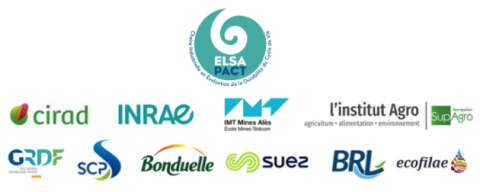
The ELSA-PACT Chair is the result of a collaboration between researchers, teachers and companies in the fields of water, agri-food, organic waste products and renewable energy.
It was signed in 2013 for a first cycle with the objective of improving the implementation of Life Cycle Assessment (LCA) to better integrate the environmental and social components of products and services. It was renewed in 2019 to launch a second cycle of the chair.
IMT Mines Alès is actively involved in the chair through its ERT research team, whose work focuses on water, resources and territories. The structure of the first cycle of the Chair was based on a project financed by the ANR, whose main objective was to build and structure collaborative research actions based on an ambitious research program. In order to better respond to the needs of companies, the new structure adopted for the second cycle combines a basic "think tank" type of operation backed by a foundation (patronage framework) with a cluster of related research projects (theses, post-doctoral studies, specific R&D projects, etc.), accredited by the chair.
This work responds to strong societal challenges, linked to the need to reduce the environmental impact of products and services in order to achieve the ecological transition. The school has also distinguished itself by being listed in the top 400 worldwide in the Times Higher Education Impact ranking dedicated to environmental and societal commitment.
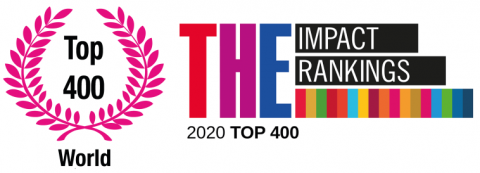
- Sponsors: Orano, Eramet, Imerys, Ministry of the Environment
- Partners: IMT Mines Alès, Mines ParisTech, Mines Nancy, Géologie Nancy
- Scientific coordinator: Pr Yann Gunzberger (IMT Mines Alès correspondent: Pr Marc Vinches)
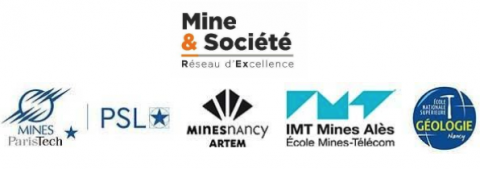
Dans un contexte mondial de demande croissante en ressources minérales de plus en plus diversifiées, l’industrie minérale soulève des enjeux cruciaux pour les sociétés contemporaines Ces enjeux sont notamment amplifiés par les tensions géopolitiques, les besoins nouveaux liés à la transition énergétique et numérique, les incertitudes liées aux évaluations économiques et par les attentes de la société civile, qui souhaite être associée aux processus de prise de décision concernant l’exploitation des ressources du sous-sol.
Sur la base d’une approche interdisciplinaire associant étroitement des compétences techniques et de sciences humaines et sociales, la Chaire Industrie Minérale et Territoires (IM&T) :
- S’adresse à l’ensemble des acteurs de l’industrie minérale (carrières) et des parties prenantes sans en exclure aucune (les citoyens, les pouvoirs publics, les centres de recherche et de formation et les entreprises)
- Analyse par cette approche interdisciplinaire les débats et controverses liés à l’exploration et à l’exploitation des ressources minérales
- Réalise des études de cas concrets sur la dynamique existant entre l’industrie minérale et son territoire, en appliquant et enrichissant ce nouveau corpus méthodologique
- Forme à tous les niveaux une nouvelle génération d’experts responsables, intégrant les enjeux contemporains des industries extractives, sur la base d’une approche multidisciplinaire, globale et transversale commune tout en fournissant des opportunités de spécialisation de plus haut niveau
- Développe des activités de communication envers les acteurs socioéconomiques et le grand public
Les 4 axes de recherche de la chaire sont :
- Révolutions technologiques dans l’industrie minérale : impacts environnementaux et sociétaux
- Techniques d'évaluation environnementale et controverses associées
- Politiques territoriales et choix de société
- Fabrique des anticipations et des engagements miniers
IMT Mines Alès participe activement à la chaire à travers son équipe de recherche ERT dont les travaux portent notamment sur l’eau, les ressources minérales et les territoires.
- Partner: SEGULA Technologies
- Scientific coordinator: Prof. Anne Bergret (IMT Mines Alès, PCH laboratory)

The VALORENZ Chair, launched in March 2019 for a period of 5 years, is based on a partnership that has existed since 2017 between the "Polymers, Composites, Hybrids" (PCH) laboratory of the Centre des Matériaux des Mines d'Alès (C2MA) of IMT Mines Alès, and the Automotive Department of the global engineering group SEGULA Technologies.
SEGULA Technologies works to enhance the competitiveness of all major industrial players, particularly in the automotive sector. At the heart of manufacturers' concerns is the legal obligation to reduce CO2 emissions. In addition to this, the end-of-life of vehicles must be taken into account from the design stage, and in 2015 the European Directive 2000/53/EC imposed a minimum recycling rate of 85% by mass. This encourages companies in the transport sector to explore new ways of lightening its environmental impact and recycling.
Thanks to the experience it has acquired, with manufacturers of all types of vehicles (automotive, rail, naval, etc.), SEGULA Technologies offers its partners new designs for parts, structures and appearance, as well as innovative material solutions to meet these major challenges.
In addition, the Group is developing its knowledge and skills in the field of composites, which, given the current context, has led it to investigate the recycling of these materials in an innovative way. Indeed, after having successfully explored various mechanical recycling techniques for more than 10 years, various end-of-life materials sectors (automotive, WEEE, biocomposites, etc.) have very recently seen the emergence of alternative techniques involving other processes, biological and enzymatic in particular.
The Polymers, Composites, Hybrids (PCH) laboratory at IMT Mines Alès is developing research on the development of innovative polymeric and composite materials, taking into account all stages of their life cycle (material formulation, processing, properties of use, durability, end of life), while emphasizing the understanding of the relationships between composition/properties/ processing/structure. The PCH laboratory formed a national working group in September 2015 on the enzymatic recovery of plastics and composites to further its work on polymer durability and recycling.
Following initial collaborations initiated in 2017, SEGULA Technologies and IMT Mines Alès decided to launch the VALORENZ Chair: "original and innovative development of VALORization of automotive industry composites by ENZymatic means". Through this chair, the two partners affirm their desire to develop knowledge about the relationships between four-dimensional systems (composition / mechanical properties / processing / susceptibility to enzymatic recycling) in order to be able to design composites with a controllable lifespan. The results of this research work are intended to demonstrate that composites obtained by infusion can achieve competitive levels of mechanical performance and stability. It will also study the recycling potential of such composites at the end of their life using an innovative method involving enzymatic catalysis, in order to regenerate the initial constituents.
In addition to this research work, the chair includes several doctoral theses, several master's projects, as well as using the school's pedagogical exercises.
This work responds to the strong expectations of the sector's industrialists, and corresponds to the societal issues related to the need to reduce the environmental impact of industrial activities in the service of ecological transition. The school has also distinguished itself by being ranked 69th worldwide in the Times Higher Education Impact ranking in the category of responsible production and consumption, thanks in particular to the innovations developed at C2MA in the field of bio-sourced materials with a low carbon footprint (bioplastics, biocomposites, agri-concretes), in the recycling of plastic and composite materials, and in the environmental impact of materials.
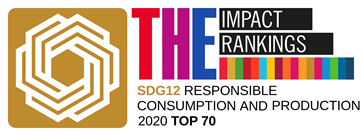
- Partner: Centre d'études et de recherche de l'industrie du béton (CERIB)
- Scientific coordinator: Pr Eric Garcia-Diaz (IMT Mines Alès, DMS team)

The "Low Carbon Concrete" chair was launched in November 2019 between IMT Mines Alès and the Concrete Industry Study and Research Center (CERIB). Its objective is to reduce the carbon impact of concrete formulas intended for prefabrication.
Building on a solid foundation of scientific cooperation initiated in 2013, this chair is an intersection of the scientific and technical strategies of CERIB via its "Materials and Circular Economy" department and IMT Mines Alès via its "Sustainability of eco-materials and structures" research team (C2MA's DMS team, associated with the Mechanics and Civil Engineering Laboratory, UMR LMGC).
The Chair's scientific program, which includes research projects and applications for doctoral training (including several theses), aims to reduce the carbon impact of concrete formulas for prefabrication. The initiatives and axes studied are :
- the use of binders with lower CO2 emissions associated with chemical or thermal activation ;
- the reduction of binder dosage by increasing the compactness of concrete resulting from the optimization of granular skeletons, the contribution of the compaction process, or the optimization of the use of admixtures;
- the physico-chemical mechanisms of concrete containing less traditional constituents such as lightweight aggregates, recycled aggregates...
This work meets the high expectations of the sector's industrialists, and corresponds to the societal issues related to the need to reduce the environmental impact of construction activities at the service of the ecological transition. The school has also distinguished itself by being ranked 69th place worldwide in the "Times Higher Education Impact" ranking in the category of responsible production and consumption. This is thanks in particular to the innovations developed at C2MA in the field of bio-sourced materials with a low carbon footprint (bioplastics, biocomposites, agri-concretes), in the recycling of plastic and composite materials, or on the environmental impact of materials.
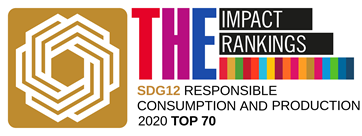
- Partner: M2I Développement
- Scientific coordinator: Pre Valérie Desauziers (IMT Mines Alès, RIME team)
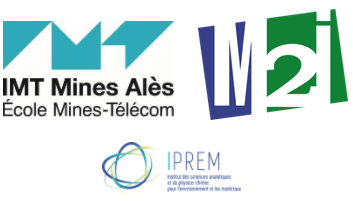
The "So Ph'Air" chair was launched in January 2020 between IMT Mines Alès and M2I Développement. Its objective is to better understand the mechanisms of pheromone diffusion to optimize biocontrol in agriculture, as an alternative to pesticides.
Based on a solid foundation of scientific cooperation over 5 years, this chair is an intersection of M2I's scientific and technical strategies and those of IMT Mines Alès via its research team "Research on the interactions of materials with their environment" (RIME team of C2MA in Pau, associated with the Institute of Analytical Sciences and Physical Chemistry for the Environment and Materials, UMR IPREM 5254
M2i is a leader in the field of pheromones for the biological protection of plants and crops, as an alternative to pesticides. A pheromone is a substance naturally secreted and emitted in minute quantities by a species and which, when received by an individual of this species, causes a specific behavior or reaction. It constitutes a signal acting as a messenger between individuals of the same species. These non-harmful substances are reproduced in the laboratory by biomimicry, and thus allow us to fight against insect pests by attracting, disturbing or repelling them. The control solutions developed by M2i consist of the application in the field of insect pheromone-based formulations that will diffuse in the air. The control of the emission over time and space of these compounds governs the efficiency of the finished product.
The RIME research team at IMT Mines Alès has expertise in the development of sampling and analysis methods for trace volatile organic compounds (VOCs) and semi-volatile compounds (SVOCs) in the air and at the material/air interface. The developed methodologies allow to characterize characteristaion of the exchanges of these compounds between materials and air (emission, diffusion, ...) and to study their spatio-temporal evolution.
The Chair aims to better understand the mechanisms of pheromone diffusion as a key element in the development of biocontrol solutions as an alternative to pesticides. There is significant potential for synergies in scientific objectives and skills that exist between the two partners, who wished to structure a strong long-term partnership.
This work responds to strong societal challenges, linked to the need to reduce the environmental impact of agricultural activities in the service of ecological transition. The school has also distinguished itself by being listed in the top 200 worldwide in the "Times Higher Education Impact" ranking on the preservation of terrestrial ecosystems through its scientific work at the LGEI and C2MA on environmental assessment, life cycle analysis and the ecological impact of materials and products.
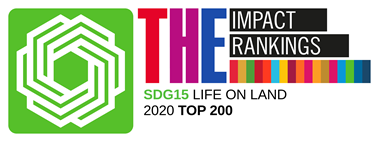
- Partners: SC Méthode, TRF Retail
- Scientific coordinator: Pr Jacky Montmain (IMT Mines Alès, I3A team)

This chair, launched in 2017, builds on the existing cooperation, that started in 2010, between IMT Mines Alès via its Information, Image, Artificial Intelligence (I3A) team and the Nîmes start-up SC Méthode. It is based on a 3-year research program.
SC Méthode is a software publisher for the retail industry, offering the performance improvement of stores, particularly franchisees, through IT solutions. Its flagship tool, TRF Retail, enables better financial results by identifying and prioritizing high value-added tasks and transforming inventory and non-productive space into productive inventory and space. TRF Retail software analyzes and scores the performance of each item, identifies under-supplied items and those that are not adapted to local buying behavior. It then triggers alerts and recommendations to be implemented.
It is a very intuitive user experience ,that allows the user to continuously improve his commercial offer, to increase his profitability per square meter as well as his sales and margin, to reduce out-of-stocks and overstocks, behind which is hidden powerful mathematical models that are expressed at all levels of the software: data collection, analysis of opportunities, execution of actions and continuous measurement of results...
The following areas are mastered by the I3A team at IMT Mines Alès. Since 2010, the school and the start-up have been collaborating on multi-attribute optimization and multi-criteria analysis to formalize the concept of performance index. Several research agreements have been signed, focusing on the optimized management of stocks and assortments in mass retailing through product steering and performance; the customer management system guided by product performance; and clustering tools (data grouping). For this last function in particular, the LGI2P, specialized in the design, the realization and the optimization of technical systems, and also contributes to the definition of the technological architecture allowing to support the very large volumes of data concerned.
The desire of the two partners is to develop, through this new industrial chair launched in March 2017, tools that meet the strategic challenges of mass retail. For the next three years, the approach will focus more specifically on the optimal assortment of supermarket stores with research issues on approximate reasoning, multicriteria and combinatorial optimization. Innovative research and teaching themes will also be developed at the national and international levels, also constituting an accompaniment of the local societal transformation.
- Partner : : GEOCONCEPT
- Scientific coordinator : Pr Michel Vasquez (IMT Mines Alès, équipe I3A)

This chair, launched in October 2017, builds on the existing cooperation, since 2007, between IMT Mines Alès and the GEOCONCEPT group. It is a 3-year research program.
Recognized as a major player in Field Service Management and Vehicle Routing & Scheduling by Gartner, the GEOCONCEPT group is now positioned among the world leaders in geographic optimization applications for businesses. Since its creation in 1990, GEOCONCEPT has been developing innovative geoptimization solutions with high added value, enabling the integration of geographic intelligence within information systems and facilitating business processes. Thanks to the openness of its technologies, the geographical coverage of its solutions and its 24/7 support, GEOCONCEPT manages international projects and optimizes the daily movements of 150,000 resources worldwide. GEOCONCEPT is an integrator and editor, covering many fields of expertise: route optimization, first and last mile optimization, sectorization, geolocation and real-time monitoring of logistics activities, Field Service Management, optimized planning of field interventions, geomarketing, GIS... GEOCONCEPT offers transport and logistics professionals solutions adapted to the new societal challenges and designed in an environmentally responsible approach. Objectives: quality of service, cost optimization, productivity gain, reactivity, respect of deadlines and improvement of working conditions.
The technology is mastered by the Computer Science, Image, Artificial Intelligence (I3A) research team at IMT Mines Alès, particularly with regard to the design, implementation and optimization of technical and technological systems. Since 2007, IMT Mines Alès has been involved in GEOCONCEPT's research and development programs for the resolution of vehicle route planning and appointment scheduling problems, as well as for the smoothing of the maintenance teams' workloads. The contribution of IMT Mines Alès consists in the design and coding of operational research algorithms using heuristic approaches. The source codes developed by the I3A research team are integrated into the "solver" - a set of solutions - that GEOCONCEPT uses to meet the needs of its industrial customers and which is now a reference.
Through this industrial chair, the two partners want to support research that meets the strategic challenges of transport and logistics. For the next three years, their collaboration will focus more specifically on strategic optimization, balancing tasks over the long term, but also taking into account statistical and real-time traffic information to improve optimization. Innovative research and teaching topics will also be developed at the national and international levels, also constituting an accompaniment of the societal transformation.

